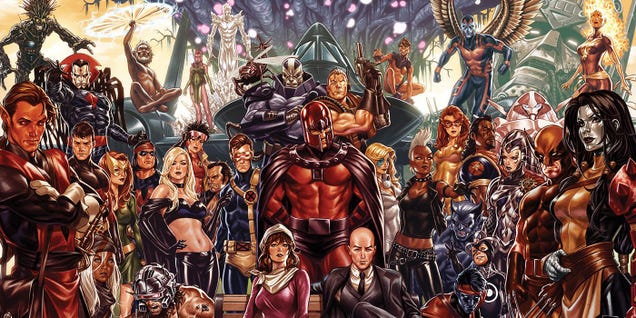No, I’m not a technological pessimist.
Au contraire, dear reader.
There is a gaggle of new tech features that I’ve actually been gushing over lately thank you very much, including iPhone 15 Pro’s Action Button, iOS 17 Name Drop, and ChatGPT Plus’ “Make it More.”
However, there are other tech features released this year that made me scratch my head and think, “Why is this a thing?”
Without further ado, here are the most overrated tech features of 2023.
1. Pixel 8 Pro’s temperature sensor
One of the most highly anticipated features of the Pixel 8 Pro was the built-in thermometer.
Credit: Google
Whispers of this temperature sensor grew louder as the Made by Google event neared launch on Oct. 4. However, when Google finally announced it, the search engine giant hurriedly explained it as an object reader that can determine the thermals of your baby’s milk or a searing-hot pan.
Wait, what?
What about the leaked video that showcased a woman taking the temperature of her forehead with the Pixel 8 Pro? Where’s that thermometer?
As it turns out, the Pixel 8 Pro’s temperature sensor doesn’t have FDA approval, so it hasn’t been cleared to be marketed as something that can be used on humans.
Bummer! Without FDA approval, the Pixel 8 Pro’s temperature is a bit gimmicky.
2. Meta AI
Meta, formerly known as Facebook, debuted its new answer to ChatGPT (i.e., Meta AI) during the Meta Connect event. Although OpenAI’s model can be inaccurate and a little rough around the edges, you’ll be thanking your lucky stars for ChatGPT when you experience Meta AI.
Credit: Meta
First thing’s first, the social media giant added Meta AI to the new Ray-Ban Meta Smart Glasses, which officially began shipping on Oct. 17. As someone who owns a pair, unfortunately, Meta AI needs some work. While it works well in taking voice commands, it’s not the best at answering questions.
To put it succinctly, Meta AI is more like Siri than ChatGPT. However, to be fair, Meta AI is still in its infancy, so perhaps in a few years, it will mature into a more sophisticated model.
3. Personas
Meta AI underpins Personas, but I felt that this tomfoolery needed a dedicated section. If the tech world could give Razzie Awards, I’d hand one to the bizarre AI avatars Mark Zuckerberg gushed about at Meta Connect.
The Meta CEO touted these AI avatars as personal assistants, but they use the likeness of celebrities we know and love, including Snoop Dogg, Paris Hilton, and Kendall Jenner.
Credit: Meta
Then, during the segment, Zuckerberg didn’t acknowledge that these are celebrities, calling Snoop Dogg’s AI avatar “The Dungeon Master.” Our theory is that Meta paid for the image of these high-profile figures, but did not secure the rights to slap the stars’ names across the Meta AI product. (According to Business Insider, Meta paid up to $5 billion to use these celebrities’ faces.)
Either way, if you’ve ever had a chance to interact with any of these Personas, you’ll find the whole experience to be bizarre — in a Black Mirror kind of way. No, thank you!
4. Windows 11 Copilot
Copilot, on paper, sounds exciting. When I first heard about it, I was at the edge of my seat to learn more. It seemed like Copilot was what all Windows users wished Cortana and Clippy were — a digital personal assistant that’s actually useful.
Credit: Microsoft
However, upon using Copilot myself on Windows 11, I found it to be quite slow — too slow — in populating answers to my questions. Secondly, I was often disappointed with the results. Microsoft boasted that Copilot can supply you with the appropriate recipes if you give it pictures of food. I dropped a photo of lasagna into the AI chatbot; unfortunately, it failed to deliver a satisfactory response.
Like Meta AI, Copilot is a fledgling AI model, and I’m sure the engineers behind it are putting in blood, sweat and tears to make it a knockout feature for Windows users. As it stands now, it’s just not there yet.
5. ‘Double Tap’ on Apple Watch
When Apple announced the Double Tap perk featured with the Watch Series 9, the social media landscape was electrified with positive feedback about the feature.
Credit: Stan Shroeder / Mashable
However, Double Tap isn’t necessarily new. As DigitalTrends (and many users and accessibility advocates) pointed out, Double Tap has been around since the Apple Watch Series 4, via an accessibility feature called Assistive Touch, which helps you use the wearable if you have difficulty pressing buttons or touching the screen.
“I’ve tried the AssistiveTouch feature on my first-generation Apple Watch Ultra. The Double Pinch gesture is pretty much the same as what Apple showed off for Double Tap,” Christine Romero-Chan of DigitalTrends said.
No, it’s not quite Double Tap, a feature that’s far more sophisticated (thanks to the S9’s neural engine), but it’s close enough. Interestingly enough, Mashable’s Crystal Bell and Stan Schroeder have the new Watch Series 9, but they do not use Double Tap often.
Of course, Bell and Schroeder aren’t representative of all Apple users, but the light usage solidifies the argument that Double Tap is slightly overhyped.
These are the top five most overrated tech features of 2023. Read More Mashable

